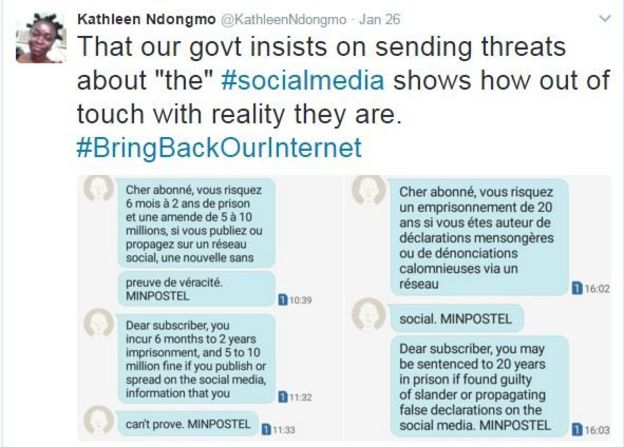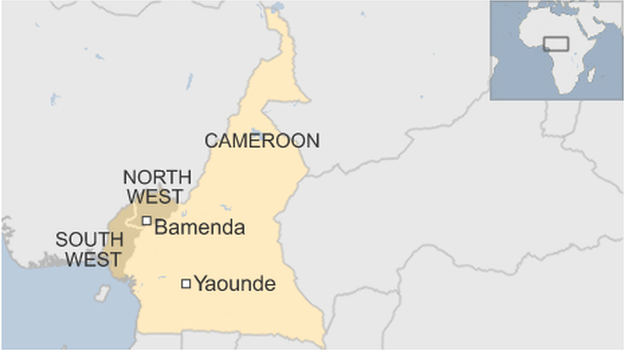In Cameroon, blocking the Internet. Causes of what is happening

Internet cafe in Cameroon. It is no different from dozens of the same in other countries, only now the Internet is not here.
Cameroon is a country with a population of over 20 million in western Central Africa. The state system is a republic; Cameroon is part of the Commonwealth , led by Great Britain. Three weeks ago, the government of Cameroon ordered to block the Internet in English-speaking parts of the country. Access to the network has not yet been restored.
According to a number of media reports , the Internet is blocked in the South-West and North-West regions, the blocking itself is associated with anti-government protests that have not subsided for several months now. The day before the Internet was turned off, representatives of the Cameroonian Ministry of Post and Telecommunications issued a statement introducing criminal penalties for spreading false information about the situation in the country.
A little later, an abbreviated application form was sent to mobile devices of citizens of the country. The SMS stated that for a "duck", that is, fake news, you can get a long prison term.
')

The Internet in the above-mentioned parts of the country was turned off on January 17th. Since then, the public and business representatives have come out for renewing the connection to the network. Citizens cannot communicate normally with each other and their foreign colleagues, relatives and friends. And business representatives were cut off from foreign economic channels, which blocked the possibility of conducting electronic commerce.
“When all this happened, and they turned off the Internet, which became my source of livelihood, I thought that maybe I made the wrong decision. I probably should have left the country, as many of my friends did and never come back. And I don’t even know when the Internet will be turned on again, ”the IT entrepreneur Churchill Mambe complains about the government.

The words of Mamba are confirmed by Edward Snowden, who stated that entrepreneurs cannot do business normally. Online money transfers do not work, it has become impossible to make payments, it is also impossible to accept money. Moreover, the government does not comment on what is happening, although as early as November, its representatives warned of a possible disconnection of the network in the country in the event that local media spread anti-government appeals.
Telecommunication companies, which local residents blame for not fulfilling the working conditions, also suffer. One of these companies is Orange.

The country's economic problems are becoming more significant every day since the moment of disconnection from the network. The fact is that most e-commerce companies are located in Buea , a city that is considered the capital of the south-west of Cameroon. It is even called "Silicon Mountain". As previously reported, it is in this region that the Internet does not work. Those entrepreneurs who could temporarily relocate to another city where there is Internet, continue to work. But most of all those who can not leave. Therefore, business is worth it.
Economists from Cameroon have already considered that the first two weeks of inactivity cost the region's entrepreneurs $ 723,000. It seems not very much, but this is only the beginning, because if blocking access to the network will continue, a number of e-commerce areas, including international money transfers, simply will die. And losses can increase by several orders at once.
Why did all this happen in English-speaking regions? The fact is that most of the country speaks French, and it is believed that English-speaking citizens were the first to launch an anti-government campaign. Therefore, these areas have been disconnected from the network.

It is worth noting that Cameroon is not the first country of the Black Continent, which is engaged in blocking access to the network for its residents. Over the past year, Ethiopia, Gabon, the Gambia, Morocco and Uganda have been doing the same. Governments in several African countries are now blocking the Internet with the most minor anti-government protests.
Civilian activists from African countries are trying to fight this practice, but so far unsuccessfully. They believe that we should not allow such government actions to become the new norm. As a result, there are new protests, and governments continue to block the network in their countries. This is a vicious circle, which is very difficult to break.
As for Cameroon, there is no need to talk about the normalization of the situation soon.
Source: https://habr.com/ru/post/357258/
All Articles